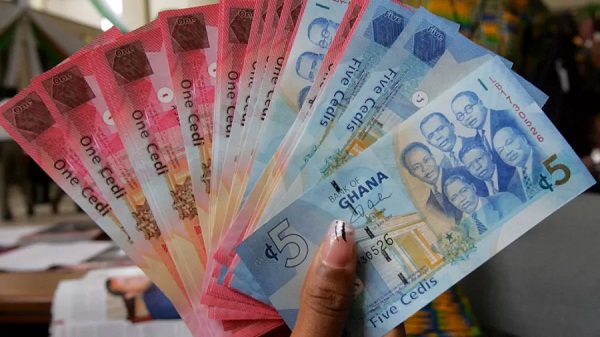Thriving in the storm: Sectors to drive growth and returns for investors in medium term
The global economy, over the last two years, has been adversely impacted by the COVID-19 pandemic and the effects of the Russia-Ukraine war, and Ghana was not insulated.
The Government of Ghana (GoG) is on the verge of finalising a debt restructuring programme as part of measures needed to secure a three-year International Monetary Fund (IMF) extended credit facility programme, with the aim of restoring macroeconomic stability.
For investors, this calls for a cautious and diligent approach to taking investment decisions to optimise value from investments.
This article is intended to point out to investor sectors in the Ghanaian economy that will potentially drive growth and returns for investors, notwithstanding the challenging economic environment envisaged over the next three to four years.
Agribusiness sector
The Agribusiness sector continues to be a potential high growth area in Ghana. According to data from Ghana’s 2023 budget statement, agriculture’s contribution to gross domestic product (GDP) is projected at an average of 20.6 per cent over the period 2023 to 2026 and it is expected to record an average GDP growth of 4.1 per cent over the same period. The heightened global food insecurity presents the agribusiness sector with various growth opportunities to meet the food demands of the growing population in Ghana.
Aside the growing population, the availability of youthful workforce, availability of arable lands for commercial farming, increased government focus on the sector and increased demand for green and healthy foods are all indications that the Agribusiness Sector in Ghana is well placed to drive growth for investors.
In terms of downside risks, the sector is threatened by illegal mining and its related destruction of agricultural lands and water bodies, negative effect of climate change, competition from well-established Agribusiness firms within the subregion and beyond and a lack of access to Agribusiness financing.
The key segments of the sector that are likely to drive growth for investors include cocoa processing, raw cashew processing, rice production and oil palm production, climate resistant seeds and technology, aquaculture production and agriculture mechanisation services.
ICT sector
The information and communication technology (ICT) sector is considered by many analysts as a catalyst for innovation and growth in other sectors of the economy. The Ghanaian ICT sector contributed about five per cent to GDP, which was estimated at $1 billion in 2021.
The sector’s contribution to GDP is projected at an average of 4.8 per cent over the period 2022 to 2026 and it is expected to record an average GDP growth of 5.5 per cent over the same period. The sector’s contribution to GDP is further expected to increase to US$5 billion by 2030, with the growth mainly anchored by telecommunication service providers, electronic and payments system services, media companies and software developers and training institutions.
The COVID-19 pandemic, and issues emanating from it, has accelerated the adoption of digitalisation in Ghana, including embracing the new norm of working remotely, transferring resources across financial platforms and purchasing goods and services online. This trend saw a huge demand for e-commerce, fintech and other collaborative software to facilitate the new lifestyle of the growing middle class.
In terms of strengths, greater market access to neighbouring countries due to the African Continental Free Trade Area (AFCFTA), increasing demand for e-commerce and e-money-related transactions due to implementation of Pan-African Payment and Settlement System (PAPSS), supportive regulatory environment and growing Government investments in the digital ecosystem provides good prospects for the sector.
The downside risks include low number of tech savvy workforce, increasing competition from well-established firms across the globe, rising cases of cyber security issues and difficult access to reliable and affordable power supply in certain areas.
For investors, segments such as Fintechs, payment services and remittance businesses, cybersecurity, digital infrastructure, E-commerce and Artificial intelligence (AI) are expected to be key value drivers in the short to medium term.
Manufacturing sector
Ghana’s rich and diverse natural resources provide the key inputs needed for a thriving manufacturing sector. The 2023 Budget Statement projects that the sector will contribute an average of 10.9 per cent to Ghana’s GDP and to grow at an average rate of four per cent over the period from 2022 to 2026. Additionally, Ghana’s relatively young population and her 54.1 per cent urbanisation rate are key growth drivers for the manufacturing sector.
The recent economic turmoil has brought all stakeholders, including government, to a concerted solution of adding value to raw materials and moving on a tangent of domesticating manufacturing of essential items to reduce imports to a minimal level.
For investors, we expect segments such as pharmaceutical product manufacturing, textiles and garments manufacturing, iron/steel processing, production of construction materials and fabrication and manufacturing of agricultural machinery and equipment to be key value drivers for investment returns and growth.
Conclusion, recommendation
The current economic challenges present a bleak picture of overall growth. However, investors will need to take a deep dive into the presented business segments to identify the best approach to exploit industry opportunities to spur growth and generate investment returns amidst the challenging economic environment envisaged over the next few years.
The writers are Partner and Financial Advisory Leader, and Senior Manager, Financial Advisory
Deloitte Ghana



